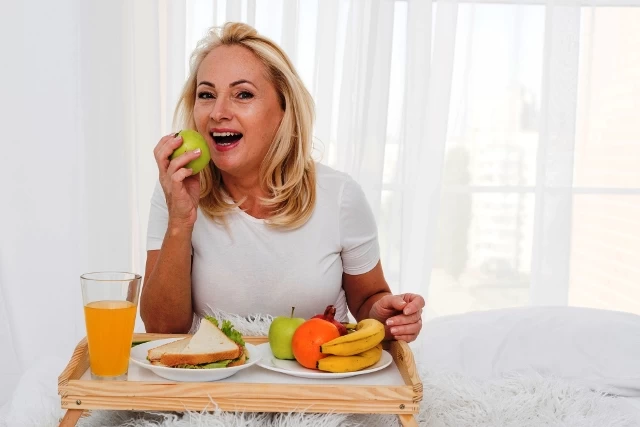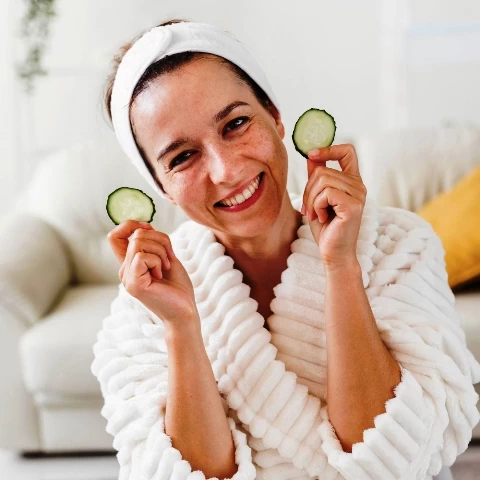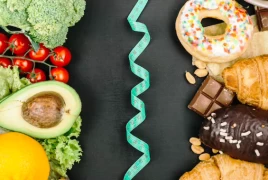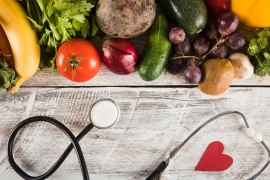
Anti-Aging Nutrition: Discover the Secret of Youth through Nutrition
- Anti-Aging Nutrition: Discover the Secret of Youth through Nutrition
- Anti-Aging Nutrition
- What Is Anti-Aging Nutrition?
- Key Recommendations for Anti-Aging Nutrition:
Anti-Aging Nutrition
Anti-aging, the methods applied to slow down or reverse the aging process, aims to rejuvenate skin tissue, balance hormones, and maintain all the elements that constitute the body's building blocks and mortar within normal limits, thus preventing age-related diseases. By consuming the right nutrients, you can protect cells, reduce the risk of age-related diseases, and discover the secret of youth through nutrition.
Aging is a biological process influenced by a combination of internal and external factors, despite being under the influence of mental structure. The main factors that affect the aging process and cause long-term damage to the skin and other organs are as follows:
- Sun
- Toxins
- Air pollution
- Inflammation
- Gravity effect
- Unhealthy nutrition
- Muscle loss
- Decrease in collagen content
- DNA damage
- Telomere loss
- Oxidative stress
What Is Anti-Aging Nutrition?
Anti-aging nutrition is a dietary approach that includes nutrients that protect cells and reduce age-related damage. These nutrients include antioxidants that combat oxidative stress in the body, anti-inflammatory compounds that reduce inflammation, and nutrients that support collagen production. Anti-aging nutrition helps keep your skin young, healthy, and radiant, increases your energy levels, and improves your quality of life.
The aging process that starts with the shortening of telomeres in the structure of DNA can be delayed by the Mediterranean Diet, antioxidant-rich foods, regular exercise, quality sleep, and a peaceful and stress-free lifestyle, as indicated in numerous studies.
Moreover, one of the most potent anti-aging substances, "Antioxidants," are natural substances that cleanse free radicals, which are responsible for cell damage. Just as fibers clean up waste in the intestines, antioxidants remove leftover free radicals in cells. Research shows that antioxidant vitamins taken in sufficient amounts can affect telomere length and delay the aging process.
Therefore, portion control under expert guidance; ensuring balanced and adequate nutrition, and including high-quality foods with high Oxygen Radical Absorbance Capacity (ORAC) values, which is the most commonly used method for assessing the antioxidant content of foods, is crucial.

Key Recommendations for Anti-Aging Nutrition:
- Eat Colorful Foods: Colorful fruits and vegetables are rich in antioxidants such as vitamins A, C, E, beta-carotene, and lycopene. Berries like blueberries, blackberries, raspberries, pomegranates, apples, cranberries, currants, elderberries, plums, dried apricots, figs, and dark-skinned grapes (rich in antioxidant polyphenols like resveratrol) are among the fruits with high ORAC values. Similarly, green leafy vegetables like spinach, broccoli, celery, carrots, artichokes, cabbage, cooked tomatoes, red bell peppers, and sweet potatoes are also among the vegetables with high antioxidant content.
- Consume Healthy Fats: Healthy fats containing monounsaturated fatty acids and Omega-3 fatty acids, such as salmon, avocado, olive oil, chia seeds, flaxseeds, and walnuts, help reduce inflammation and support skin health. Astaxanthin is also a powerful anti-aging antioxidant. The most effective way to reach astaxanthin is through the consumption of krill oil.
- Green Tea: Green tea contains powerful antioxidants called catechins and polyphenols, which help combat cell damage.
- Herbs: Add rosemary, ginger, and turmeric to your diet. Ginger speeds up metabolism. While turmeric acts as an antioxidant that prevents cancer, rosemary supports liver functions and reduces inflammation thanks to its high content of antioxidants like vitamin E.
- Coenzyme Q10: Another important vitamin that delays the aging process is coenzyme Q10. It not only protects against DNA damage but is also necessary for heart and muscle health. Sources of coenzyme Q10 include lean red meat, peanuts, broccoli, cauliflower, salmon, and mackerel.
- Probiotic and Fiber-Rich Foods: Maintaining and improving gut health is a significant step in delaying the aging process. Gut health is closely related to the immune system and anti-aging mechanisms. To support gut health, it is important to include probiotic or synbiotic foods (such as probiotic yogurt, kefir, etc.) in your daily diet and emphasize fiber-rich foods (whole grains, legumes, and fruits with skins).
- Detoxify by Drinking Water: The main factor that allows toxins to be eliminated from the body is "drinking water." Drinking the recommended amount of water daily, based on body weight and physical activity, is of great importance. Especially, it is important to drink at least one glass of water before going to bed and immediately after waking up in the morning.
Pay attention to the amount of calories you consume. Even if you are consuming beneficial foods, excessive calorie intake can undermine your anti-aging efforts. Among the foods to avoid are processed foods, products containing simple sugars, and foods containing chemical additives. While it is not possible to completely prevent aging, physical aging can be slowed down significantly, and even the quality lifespan can be extended by adopting a healthy diet. The key to youth and health lies in proper nutrition. Take care of yourself and pay attention to your diet to lead a healthy life!






